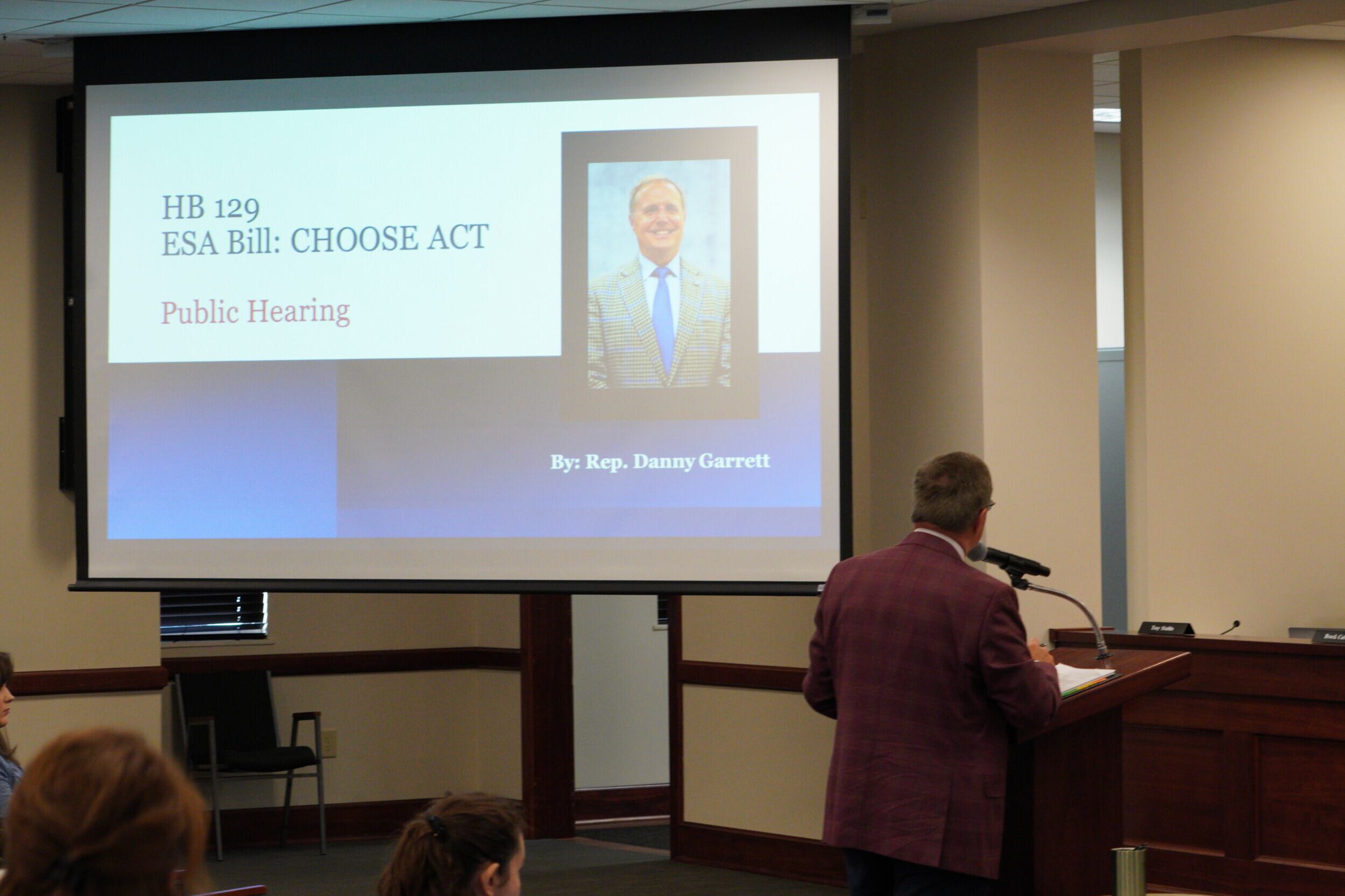MONTGOMERY — On Thursday, the Alabama House Ways and Means Education Committee passed Gov. Kay Ivey's amended education savings account (ESA) legislation called the Creating Hope and Opportunity for Our Students' Education (CHOOSE) Act.
State Rep. Danny Garrett (R-Trussville) is sponsoring the House version of the bill and presented it before the committee for a public hearing on Wednesday.
House Bill 129 (HB129) will allow the Department of Revenue to manage the ESAs for approved students. The ESA would be funded through a refundable income tax credit made available to eligible parents. The individual credit would be capped at $7,000 for students in participating schools, while non-participating school students – such as homeschooled students – are capped at $2,000 per student and $4,000 per family.
"The first two years, families whose income is at 300% of the federal poverty level or less can direct a portion of the taxes they pay toward alternative public, private or homeschool education expenses. After the first two years, any parent is eligible to participate, but a priority will be given to families based on their income. Upon the CHOOSE Act becoming law, throughout the state, options will become immediately available to students who are able to access an [ESA]. In areas of the state where no alternative options exist, and there are many, the CHOOSE Act can be a vehicle to provide financial support for the creation and development of options in those areas," Garrett said.
Critics of school choice have long bemoaned the perceived adverse effects on the state's Education Trust Fund [ETF]. Garrett stated that the Act would not "gut or adversely affect" the ETF and that initial funding would come from supplemental appropriations.
The CHOOSE Act appropriates at least $100 million to the education savings account program annually. Ivey has set aside $50 million for the fund in the Fiscal Year 2024 Education Trust Fund supplemental.
ESAs are appropriated a minimum of $100 million annually under the amended bill. The amount would only increase if at least 90% of the currently allocated funding is utilized through the program. Garrett also pointed out that this year's budget will increase funding for public K-12 schools by $370 million.
The amended bill would require participants to be lawful residents of the United States, limit total accumulated ESA funds to $500 million before the excess begins funneling into the ETF, require participating schools to be Alabama-based, require annual test scores be given to parents and require that school assessments be shared with the Revenue Department.
At Wednesday's public hearing, many traditionally anti-school choice associations spoke on the bill from a "neutral" perspective, such as the Alabama Education Association (AEA), School Superintendents of Alabama, Alabama School Connection, The Alabama Association of School Boards and the Alabama Association of School Boards.
Allison King with the AEA was first to the podium, commending Ivey and her staff and other lawmakers for working to put "a lot of good provisions and protections."
Several other school choice proponents spoke in favor of the legislation, including leadership for the state's catholic schools.
A number of homeschool and micro-school supporters also neutrally addressed the bill while still advocating for better provisions in the bill for homeschool families.
One person opposed the bill, Carol Gundlach with Alabama Arise, who claimed that the tax credit would reduce ETF revenue and, therefore, reduce further cuts to Alabama's grocery tax.
State Rep. Barbara Drummond (D-Mobile) argued against the bill after the public hearing on Wednesday, bemoaning the lack of perceived qualifications in non-public education.
"I want these kids who are choosing the vouchers, if this bill passes, I want them to be taught by certified teachers," Drummond said.
She continued, "If they're teaching letters and the science of reading in public schools, I would want to know that those children are getting the same curriculum, or having those teachers who meet this [Alabama Literacy Act] standard; they're certified. I don't want it to be a case where these students over here who have chosen the school choice vouchers, that they're getting educated by individuals who may not meet public school standards."
Garrett took umbrage with Drummond's use of the term "voucher," also saying that the state would "never" tell private schools what its criteria must be, so long as they meet the state's accreditation requirements.
On Thursday, the committee met briefly to vote on the bill, giving it a favorable report. It will now go to the House floor for a vote, expected on Tuesday of next week.
To connect with the author of this story or to comment, email craig.monger@1819news.com.
Don't miss out! Subscribe to our newsletter and get our top stories every weekday morning.










